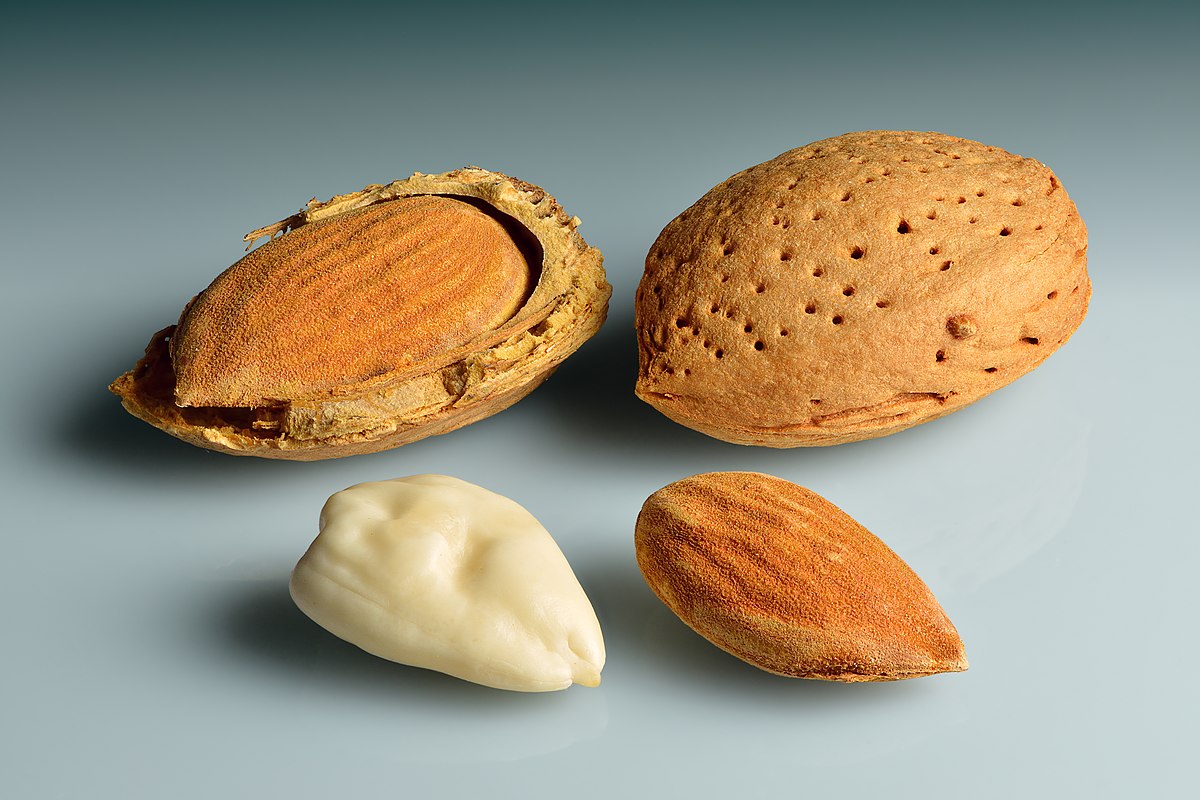
Almonds are more than just a tasty snack; they pack a punch with their nutritional benefits and fascinating history. Did you know that almonds are technically seeds, not nuts? Originating from the Middle East, these little powerhouses have been cherished for centuries. They are rich in vitamins, minerals, and healthy fats, making them a favorite among health enthusiasts. Almonds also play a significant role in various cultures and cuisines around the world. Whether you enjoy them raw, roasted, or as almond milk, there's always something new to learn about these versatile seeds. Ready to dive into some amazing almond facts? Let's get cracking!
Nutritional Powerhouse
Almonds are often hailed as a superfood due to their impressive nutritional profile. Let's dive into some fascinating facts about these tiny yet mighty nuts.
- Almonds are rich in vitamin E, which acts as an antioxidant, protecting cells from damage.
- They are a great source of healthy fats, particularly monounsaturated fats, which are good for heart health.
- A handful of almonds provides a good amount of fiber, aiding in digestion and keeping you full longer.
- These nuts are packed with protein, making them an excellent snack for vegetarians and vegans.
- Almonds contain magnesium, which helps in muscle function and energy production.
Historical Significance
Almonds have been around for centuries, playing a significant role in various cultures and traditions.
- Almonds were one of the earliest cultivated foods, dating back to 3000 BC.
- They are mentioned in the Bible, symbolizing divine approval.
- Ancient Egyptians used almonds in bread served to pharaohs.
- Almonds were a prized ingredient in Roman weddings, symbolizing fertility and happiness.
- The almond tree is native to the Middle East, particularly Iran and surrounding countries.
Health Benefits
Beyond their nutritional value, almonds offer numerous health benefits that can improve your overall well-being.
- Regular consumption of almonds can help lower cholesterol levels.
- They are known to reduce the risk of heart disease due to their healthy fat content.
- Almonds can aid in weight management by curbing hunger and reducing overall calorie intake.
- They help in regulating blood sugar levels, making them a good snack for diabetics.
- Almonds are beneficial for skin health, thanks to their high vitamin E content.
Culinary Uses
Almonds are incredibly versatile in the kitchen, adding flavor and texture to a variety of dishes.
- Almonds can be eaten raw or roasted, each offering a unique taste experience.
- They are a key ingredient in marzipan, a sweet confection used in cakes and pastries.
- Almond milk is a popular dairy alternative, especially for those who are lactose intolerant.
- Ground almonds are used to make almond flour, a gluten-free option for baking.
- Almonds can be turned into almond butter, a nutritious spread for toast and snacks.
Environmental Impact
While almonds are beneficial for health, their cultivation has some environmental considerations.
- Almond farming requires a significant amount of water, especially in drought-prone areas like California.
- However, almond trees help in carbon sequestration, absorbing CO2 from the atmosphere.
- The almond industry is working towards more sustainable farming practices to reduce environmental impact.
- Almond hulls and shells are often used as livestock feed, minimizing waste.
- Bees play a crucial role in almond pollination, highlighting the importance of biodiversity in agriculture.
Fun Facts
Let's wrap up with some interesting tidbits that you might not know about almonds.
- Despite being called a nut, almonds are actually seeds of the almond fruit, which is related to peaches and cherries.
Almonds: Nature's Tiny Powerhouses
Almonds pack a punch when it comes to nutrition and versatility. These little nuts are loaded with vitamins, minerals, and antioxidants that benefit your body in countless ways. From improving heart health to boosting brain function, almonds are a fantastic addition to any diet. They can be enjoyed in various forms—raw, roasted, or even as almond milk and butter.
Not only are they nutritious, but almonds also offer a delicious crunch to many dishes. Whether sprinkled on salads, blended into smoothies, or baked into treats, they add both flavor and health benefits.
Next time you’re looking for a snack, consider reaching for a handful of almonds. Your body will thank you for the extra boost of energy and nutrients. So, go ahead and make almonds a regular part of your diet. You won’t regret it!
Was this page helpful?
Our commitment to delivering trustworthy and engaging content is at the heart of what we do. Each fact on our site is contributed by real users like you, bringing a wealth of diverse insights and information. To ensure the highest standards of accuracy and reliability, our dedicated editors meticulously review each submission. This process guarantees that the facts we share are not only fascinating but also credible. Trust in our commitment to quality and authenticity as you explore and learn with us.


